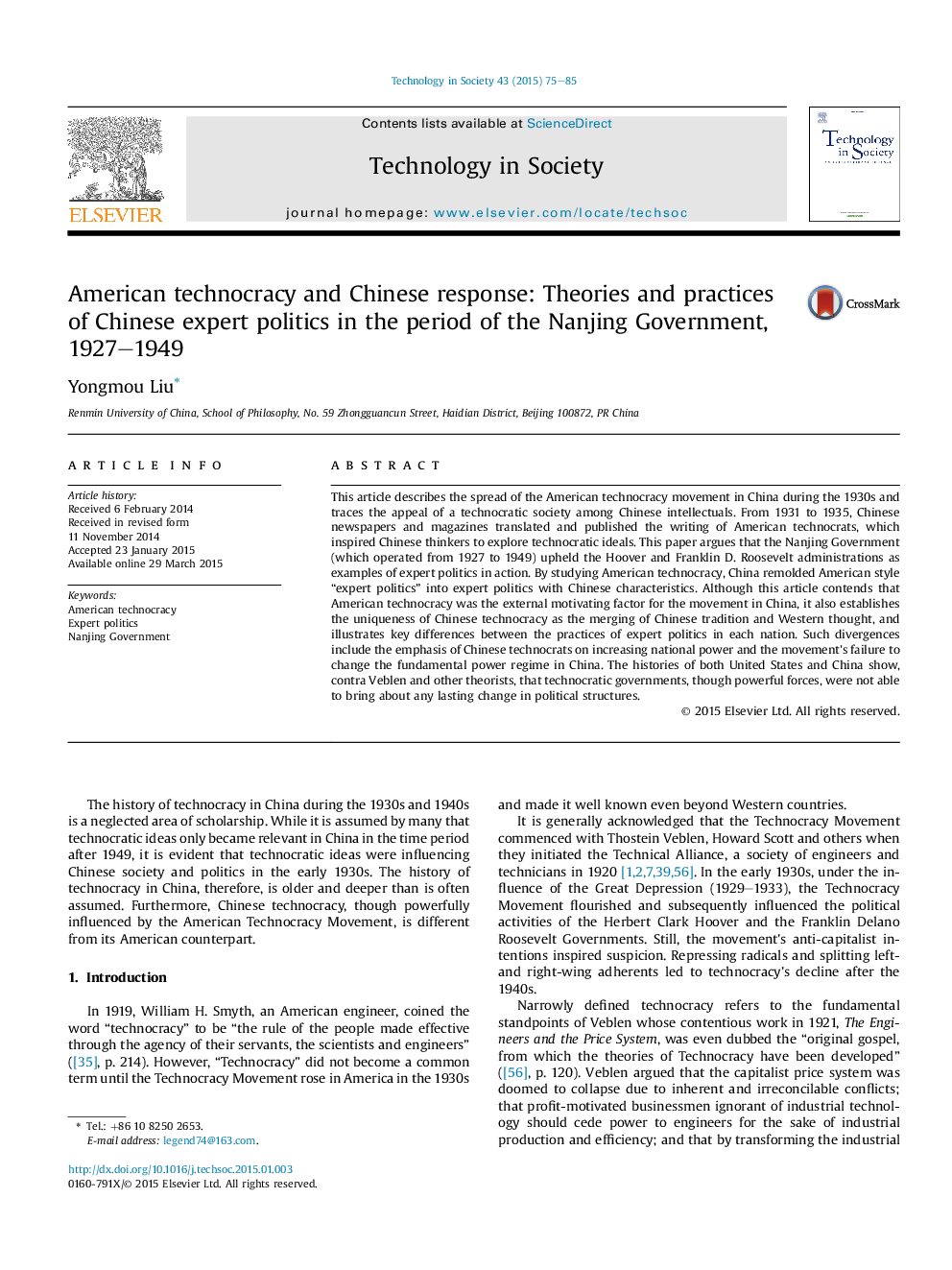| Article ID | Journal | Published Year | Pages | File Type |
|---|---|---|---|---|
| 375122 | Technology in Society | 2015 | 11 Pages |
•From 1931 to 1935, the Chinese translated American technocrat writings which inspired thinkers to explore technocracy ideal.•By studying American, China remolded American style “expert politics” into expert politics with Chinese characteristics.•The histories show that technocratic governments were not able to bring about any lasting change in political structures.
This article describes the spread of the American technocracy movement in China during the 1930s and traces the appeal of a technocratic society among Chinese intellectuals. From 1931 to 1935, Chinese newspapers and magazines translated and published the writing of American technocrats, which inspired Chinese thinkers to explore technocratic ideals. This paper argues that the Nanjing Government (which operated from 1927 to 1949) upheld the Hoover and Franklin D. Roosevelt administrations as examples of expert politics in action. By studying American technocracy, China remolded American style “expert politics” into expert politics with Chinese characteristics. Although this article contends that American technocracy was the external motivating factor for the movement in China, it also establishes the uniqueness of Chinese technocracy as the merging of Chinese tradition and Western thought, and illustrates key differences between the practices of expert politics in each nation. Such divergences include the emphasis of Chinese technocrats on increasing national power and the movement's failure to change the fundamental power regime in China. The histories of both United States and China show, contra Veblen and other theorists, that technocratic governments, though powerful forces, were not able to bring about any lasting change in political structures.
